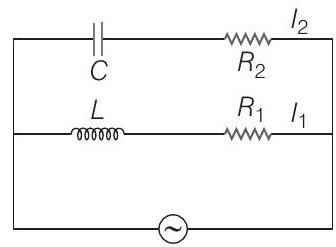Electromagnetic Induction and Alternating Current 6 Question 3
3.

In the above circuit,
(a)
(b)
(c)
(d)
Show Answer
Answer:
Correct Answer: 3. (a)
Solution:
- Phase difference between
Substituting the given values, we get
Phase difference between
Substituting the given values, we get
As,
Now, phase difference between






